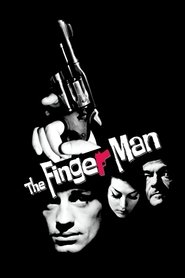Silien […] believes [his] horse is part of an idyllic future; for the first time, he is free of the past, and he allows himself to breathe in that freedom, for a few moments at least. But he is mistaken: for all his machinations, for all the blood he’s spilled, the freedom he tastes is an illusion. […] Viewed a second or third time, after we know his fate, Silien’s communion with the horse is, of course, all the more poignant. And despite that, his end never seems anything more than apt.
— Glenn Kenny (Criterion)

